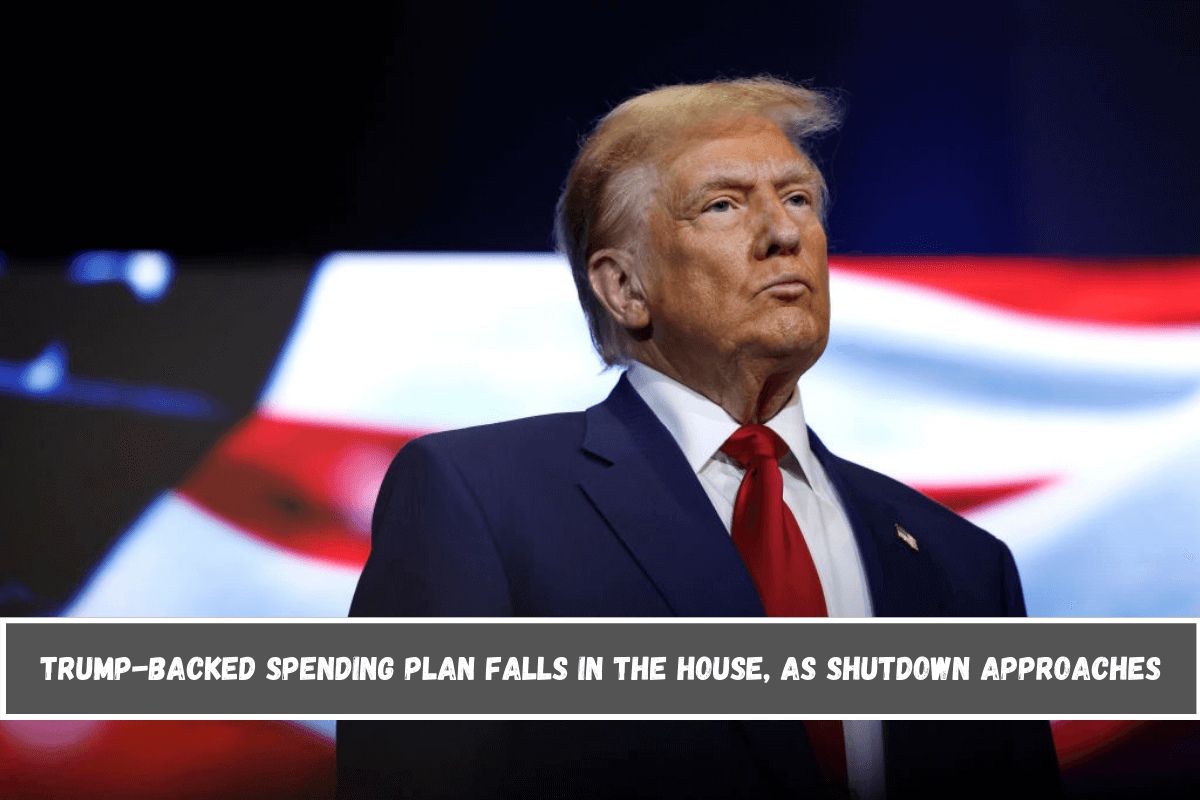A spending bill backed by Donald Trump failed in the United States House of Representatives on Thursday, with dozens of Republicans defying the president-elect, leaving Congress with no clear plan to avoid a rapidly approaching government shutdown that could disrupt Christmas travel.
The vote exposed fault lines in Trump’s Republican Party, which may resurface next year when they control the White House and both chambers of Congress.
Trump had pressed lawmakers to complete unfinished business before he took office on Jan. 20, but members of the party’s right flank refused to support a package that would increase spending and pave the way for a plan that would add trillions more to the federal government’s $36 trillion debt.
“I am absolutely sickened by a party that campaigns on fiscal responsibility and has the temerity to go to the American people and say you think this is fiscally responsible,” said Republican Representative Chip Roy, one of 38 Republicans who voted against the bill.
The package failed by a vote of 174-235, just hours after Republican leaders rushed to meet Trump’s demands. A previous bipartisan agreement was scrapped after Trump and the world’s wealthiest person, Elon Musk, spoke out against it on Wednesday.
When reporters asked Republican House Speaker Mike Johnson about the next steps following the failed vote, he provided no details.
“We will come up with another solution,” he assured me.
Government funding is set to expire at midnight on Friday. If lawmakers fail to extend the deadline, the United States government will go into partial shutdown, disrupting funding for everything from border enforcement to national parks and cutting off paychecks for more than 2 million federal employees.
The United States Transportation Security Administration warned that travelers during the busy holiday season may encounter long lines at airports.
The bill that failed on Thursday was largely similar to the earlier version, which Musk and Trump had criticized as a wasteful giveaway to Democrats.
It would have extended government funding until March, provided $100 billion in disaster relief, and suspended debt. Republicans dropped other elements from the original package, such as a pay raise for lawmakers and new rules for pharmacy benefit managers.
At Trump’s request, the new version would also have suspended national debt limits for two years, making it easier to pass the dramatic tax cuts he promised.
Before the vote, Johnson told reporters that the package would prevent disruption, tie up loose ends, and make it easier for lawmakers to reduce spending by hundreds of billions of dollars when Trump takes office next year.
“Government is too big, it does too many things, and it does few things well,” according to him.
TEEING UP TAX CUTS
Democrats slammed the bill as a cover for a budget-busting tax cut that would primarily benefit wealthy supporters like Musk, the world’s richest person, while saddled the country with trillions of dollars in new debt.
“How dare you lecture America about fiscal responsibility, ever?” House Democratic Leader Hakeem Jeffries stated during the floor debate.
Even if the bill had passed the House, it would have faced significant challenges in the Senate, which is currently controlled by Democrats. The White House stated that Democratic President Joe Biden did not support it.
Previous fights over the debt ceiling have alarmed financial markets, as a US government default would cause credit shocks around the world. The limit has been suspended under an agreement that technically expires on January 1, but lawmakers are unlikely to address the issue before the spring.
When Trump returns to office, he intends to enact tax cuts that could reduce revenues by $8 trillion over ten years, increasing the debt without offsetting spending cuts. He has vowed not to reduce retirement and health benefits for seniors, which account for a sizable portion of the budget and are expected to grow significantly in the coming years.
The most recent government shutdown occurred between December 2018 and January 2019 during Trump’s first term.
The unrest also threatened to depose Johnson, a mild-mannered Louisianan who was thrust unexpectedly into the speakership last year after the party’s right flank voted out then-Speaker Kevin McCarthy over a government funding bill.
Johnson has repeatedly had to turn to Democrats for assistance in passing legislation when he was unable to secure votes from his own party.
He attempted the same maneuver on Thursday, but fell short.
Several Republicans have said they will not vote for Johnson as speaker when Congress reconvenes in January, potentially setting up another tumultuous leadership battle in the weeks before Trump takes office.











Leave a Reply